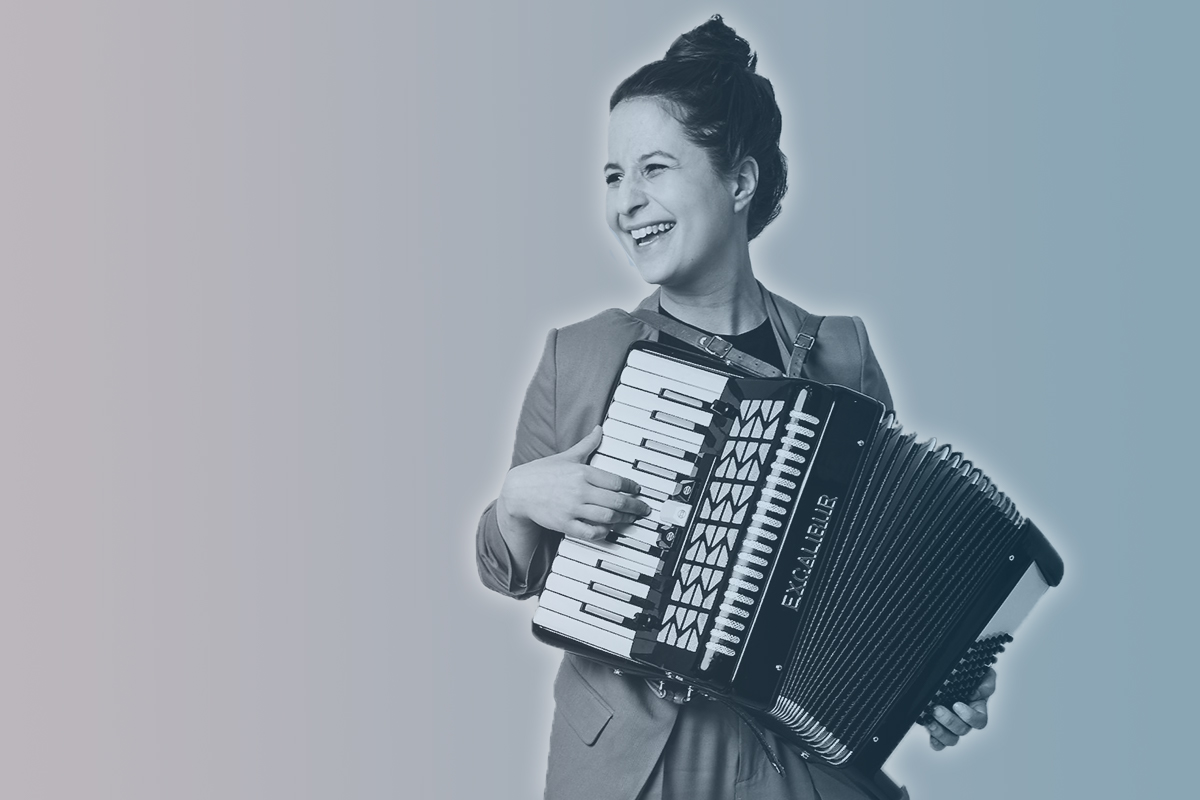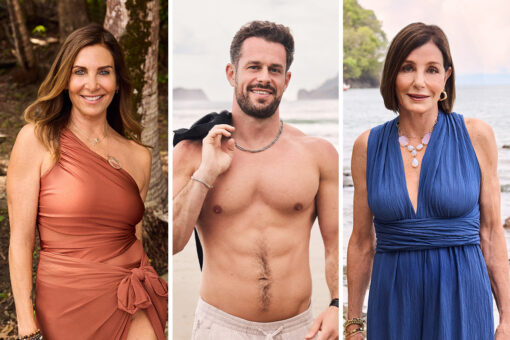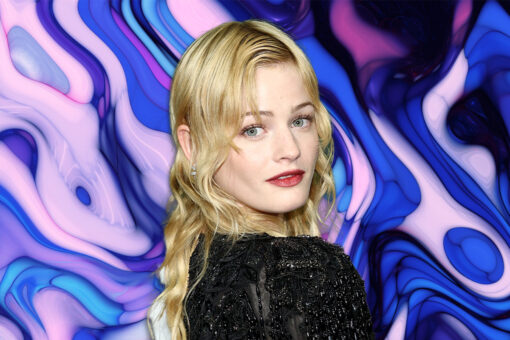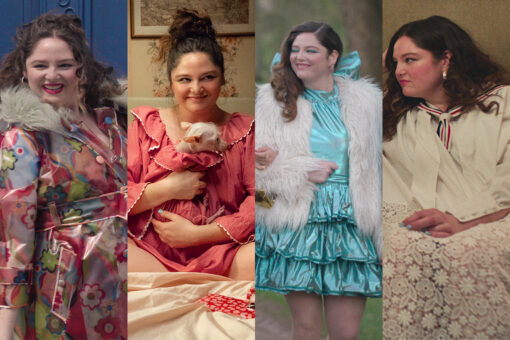Songwriter and performer Shaina Taub has tried her hand at every aspect of musical theater, and then some: composition, lyrics, and performance, plus she plays the accordion. She’s written songs both for Sesame Street and for the Tonys (with Sara Bareilles and Josh Groban — they were nominated for an Emmy), as well as the theme song for Julie Andrews’ Netflix show Julie’s Greenroom.
Shaina’s work invites people who don’t make up a traditional New York theater audience to join in. Her original adaptations of Shakespeare’s Twelfth Night and As You Like It were commissioned by NYC’s Public Theater as part of their Public Works initiative, which aims to make theater accessible by enabling members of the community to create works alongside theater professionals. Her upcoming projects may be even more exciting: She’s writing the Broadway adaptation of The Devil Wears Prada with Sir Elton John, and another musical, Suffs, about Alice Paul and the American women’s suffrage movement, will open at the Public as soon as live theater is safe again.
Today, on the Shabbat of Passover 2021, Shaina is releasing a new version of her song “Next Year,” written with Benj Pasek, Mark Sonnenblick, and Hannah Friedman for 2020’s star-studded Saturday Night Seder. The video is a collaboration between Saturday Night Seder, OneTable Pause, and Reboot.
In that original edition, which was one of the first large-scale virtual events of the pandemic, Shaina was surrounded by a chorus of virtual singers and harmonies. At the end of the song, as the singers vamped, participants — Beanie Feldstein, Whoopi Goldberg, Busy Philipps, healthcare workers, and more —— said a sentence or two about what they hoped next year would bring: hugs and kisses, seders at Lake Michigan with family, good health, peace.
Though there are many reasons to be optimistic in April 2021, many of those wishes have not yet come to pass. As she performs “Next Year” solo at the piano, Shaina reflects on everything we know now that we didn’t know then, and on how she hopes the song will be an anthem not just for these troubling times, but for future struggles as well.
Shaina talked to Alma about how her Judaism shows up in unexpected ways, writing songs for Miranda Priestly to sing, expanding access to theater, and tikkun olam.
This interview has been lightly condensed and edited for clarity.
This song was initially written for Saturday Night Seder’s online edition last year, right after COVID-19 shut everything down. I’m curious how the pandemic has changed your process in general, both individually and in how you collaborate.
For the most part it really put my theater life on hold. It’s usually very collaborative, and I’m working with creative teams on theater projects. And honestly, it’s been devastating. I had two productions that were supposed to go into rehearsal, especially one that’s my own real passion project which was supposed to have its production in the fall of 2020. And those have really been tough to keep up — they’re sort of just waiting on the shelf until we can come back. But I kind of shifted gears and got back to songwriting on my own, which is something I’ve always done. I wrote songs for an album that I’m going to record in June. That’s one thing you can kind of do alone. In general, as a creative person who’s used to working in a live medium, it’s just different.
I think the bottom line is keeping it up and being creative. I’ve done all manner of writing and projects here and there — I think I’ve spent a year putting the positive spin on everything — but it’s honestly just been really devastating. I do this stuff to be in the room with the group, I write to be in a rehearsal or a concert or thing where we’re sharing it with people or other musicians and singers. They’re playing it along with me. And that side of things has been completely missing and it sucks. But I’m gonna do a streaming concert in May. And on Friday, I have my first rehearsal with my bandmates. We’re all in the process of being vaccinated, and so we finally feel safe enough to gather again, and that’s going to be kind of wild. We’ve played together for over a decade, and we haven’t done anything in a year. So I think’s gonna be a really emotional day.
Oh, that’s so exciting, to get the magic of the room back after a really hard year. Do you think there’s anything you’ll take with you from this year? I know democratizing theater and making it accessible has been part of other projects you’ve done, like Shakespeare in the Park with Public Works.
Yeah, I think it’s fantastic that things that have been streamed are accessible to a wider audience. Even pre-pandemic, I thought they should absolutely film every Broadway show and put it in movie theaters around the country. I would love to livestream every theater production I ever do, and have it broadcast anywhere. I’ve always felt that way. I mean, nothing can replace the live thing. But I think if we can have it both ways, we should. I’ve always thought it’s kind of closed minded for people to not want to share filmed versions of things. I grew up in rural Vermont, and I would have just died for any film version of theater from New York, and I still would have wanted to come to New York and see the show.
Hopefully, the infrastructure will exist a bit more now and people will be more open to it. Growing up in rural Vermont, how did you relate to your Judaism? Is it connected to your music, and your art more broadly?
I grew up Jewish on all sides. But I grew up in an area where there wasn’t really a Jewish community. So it wasn’t a big part of my upbringing. We kind of celebrated Hanukkah and Passover a little bit, but I never went to synagogue and never really knew much about the Jewish identity. And then I came to [NYU] and there were Jews everywhere, and I was in theater, which was all Jews. And I started to connect to it more and realize that I had connections to my Jewishness that I didn’t even realize were connections to my Jewishness.
I remember the first time I heard the phrase tikkun olam, the concept of repairing the world and fixing the world as applied to social justice. And I was like, oh, yeah, that concept feeds into something that I have really felt deeply and always been passionate about and trying to do better. And that’s a Jewish concept, you know. I’m still, in some ways, early in that journey. But when I hear things like, oh, Judaism is a religion of questioning and asking questions and interrogation and not just accepting some set of how things are, I’m like, oh, yeah, that’s what I’m like. So it’s been this continual process of more recognition of things that I didn’t realize were Jewish about me.
Musically, I’ve always been so drawn to musical theater and the more I do it, the more I’m like, yeah, this is a deeply Jewish tradition of music that dates back to Yiddish theater. So many of the great writers of the form are Jewish and that was another one where it’s like, I hadn’t gotten into it because of anything Jewish, but now I am realizing that of course, on some level, I made a pilgrimage to the mecca of New York City where I’m now living among all the Jews and working in theater with all the Jews. It can’t be an accident. Like it’s got to be related, you know?
On some deep DNA level.
Yeah, exactly. People are always like, oh, your music really clearly is so connected to your Jewishness. And I’m like, it is? I guess it is. It’s been interesting to feel the innateness of that, even just melodically in the scales and the things that I’m drawn to musically. It’s not conscious, dramaturgical, musical, “this is Jewish.” It’s just that maybe that’s kind of in me in this way I didn’t even realize.
That brings us to Saturday Night Seder. What has your involvement and journey with it been across the various iterations?
I’ve been a part of the various seder events that Benj [Pasek] and Adam [Kantor] have created back when they were live. I’d had a few Passover experiences growing up, reading from the haggadah, but it felt very distant or formal. My biggest connection in the Passover story was more like the Rugrats special, Angela as Pharaoh, you know. Jewish kids of our generation, that’s our thing. Saturday Night Seder really humanized and dramatized the Passover story and the exodus from Egypt in a way I hadn’t understood. The way that they were putting it together was so powerful, the gathering of people. The seder format is so naturally theatrical, so I loved those live events.
What is the greater message or meaning of Passover to you right now? How does it dovetail with tikkun olam and the reasons you make art year-round?
The whole story is one of going from confinement to liberation, going from oppression to freedom. It is this reminder that Jews have been through that process so many times over the centuries. And, pretty obviously, that process of fighting oppression in order to be freed, in order to show up for your communities, is so prevalent and enormous right now among the Black and brown communities, immigrant communities, and all the rest. It draws attention to the parallel lines of our struggles.
One universal message of the seder is something like, be kind to a stranger, for we were all strangers once in the land of Egypt. One of the big pressing questions of our time is: When are we going to care about other people’s families the way we care about our own? If someone in your family was, God forbid, killed by police? Wouldn’t you be running through the streets yelling and screaming? How can we get people to be as passionately affected by things that are happening to people who aren’t in their direct proximity? When are we going to look out for each other and apply that concept of tikkun olam beyond our own little circles?
That Passover story resonates now: Let’s open our eyes to the fact that that story is not happening in ancient Egypt. It’s happening right now all around us. What can we do as Jews to be an ally and an accomplice in the struggle of other peoples?
In this climate — still one of pandemic and ongoing suffering, but also of some hope — what made you want to put “Next Year” out again in a new form?
When Adam first mentioned that they wanted to commemorate this anniversary, I was so excited because Saturday Night Seder was such a bright creative spot in all this. And I’m like, okay, it’s time to practice the song and get it back in my fingers. Then I was playing it and at first I felt kind of depressed. I was like, oh God, we were so young last April, we thought “next year” would be this year. At first it was rough, because it’s still so bad. Then I was like, no, this is about how there’s always next year, about always being forward-looking, always believing that the future could be better than it is now, no matter. Even a “normal” year is always a hard year in some capacity for most people on the earth. So, it’s rough, but next year we’re going to get there.
Last year, I thought “next year” meant literally the year 2021. Now I’m like, “next year” is the container for the better future that we always work towards. I zoomed out with it. Even though we created the song very specifically at a moment in time in 2020, it’s something that can resonate beyond just this one difficult situation.
On that hopeful, forward-looking note, I want to hear about your other upcoming projects. Can you tell us about your suffragist musical, Suffs?
We had planned for the five-plus years of working on the show to align in the premiere with the election of 2020 and with the centennial of the 19th amendment, so it was painful to not get to have that come to fruition. But as soon as theater’s safe again to do indoors, we’re going to be at the Public Theater.
That show really relates to a lot of what we’re talking about in working towards a better world. The quote that I have in the front of my script for that show is a Talmud quote: You are not obligated to complete the work, but neither are you free to abandon. It’s part of the thesis of the show. So much of the language of activism is about this finality of finishing a struggle — never again, enough is enough, if not now, then when. But the fights and the struggles for equality and justice are never finished, and no generation really completes that work. It doesn’t mean you don’t still have to work and fight and organize as if you could finish it. It’s holding that contradiction in your head as an activist, and as any person working towards a better future.
So yeah, I’m just so eager to finally put that on its feet. It’s been a long time coming. And it’s really strange in a process to take an involuntary 18 month break. I’ve been doing rewrites and whatnot, but when I finished one recently, I said to myself, I’m gonna put this binder on the shelf until we have a rehearsal, because it’s getting too heartbreaking.
You’re also writing the lyrics for the new Devil Wears Prada musical, working with Elton John!
It’s been so much fun. I’m really excited about that show. We have an amazing team. People think my two projects are really different. But they actually feel so similar to me: the central relationship and central conflict is similar. They’re both about an intergenerational relationship between two women fighting over power and ambition. Andy (of Devil Wears Prada) has a lot of similarities with Alice Paul, who’s the heroine of my suffrage movement show. It’s been fun to figure out why this story should be re-told now, and figure out what the perspective is on the story and really fleshing out Andy. Miranda Priestly is such a delicious character, obviously, and that’s been such a gift to write for. But Andy’s the beating heart of the story, so figuring out who she is and fleshing out her background has been the challenge and the joy so far.



